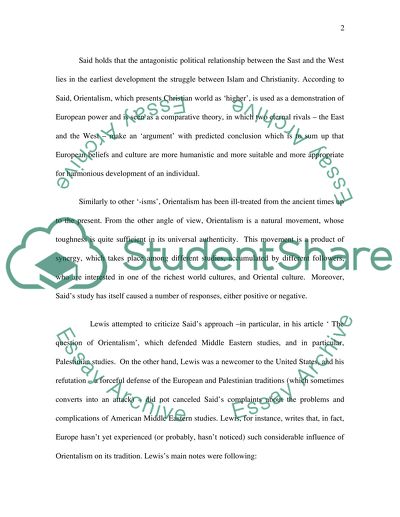Cite this document
(“Political science. Palestine and Orientalism Essay”, n.d.)
Political science. Palestine and Orientalism Essay. Retrieved from https://studentshare.org/miscellaneous/1500986-political-science-palestine-and-orientalism
Political science. Palestine and Orientalism Essay. Retrieved from https://studentshare.org/miscellaneous/1500986-political-science-palestine-and-orientalism
(Political Science. Palestine and Orientalism Essay)
Political Science. Palestine and Orientalism Essay. https://studentshare.org/miscellaneous/1500986-political-science-palestine-and-orientalism.
Political Science. Palestine and Orientalism Essay. https://studentshare.org/miscellaneous/1500986-political-science-palestine-and-orientalism.
“Political Science. Palestine and Orientalism Essay”, n.d. https://studentshare.org/miscellaneous/1500986-political-science-palestine-and-orientalism.


